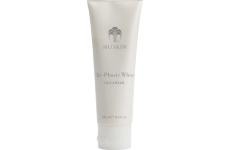Why Your Skin Care Regimen Should Be As Individual As You Are
May 25, 2015

Finding a skin care product to meet your specific needs can be frustrating. Sometimes the options available in your local store may not deliver all the benefits you are looking for. Some products may target a skin concern you would like to address while also targeting elements that are not of concern. You may have to buy multiple products to get the benefits you desire while facing some overlap in their effects and benefits. Historically, consumers have had to choose between over-targeting or under-targeting when it came to their skin care. Because there are so many products to choose from, sometimes the process of selecting a personal skin care regimen may be overwhelming, but it is important to find the right routine for you.
A Unique Routine for a Unique You
Each person you cross paths with is unique with diverse experiences that shape who they are. These experiences can also influence how they age. Aging is influenced by a wide variety of factors including ethnicity and lifestyle, making each one of us unique. Your skin care regimen should reflect and compliment the differences that make you uniquely you.
How Your Ethnicity Influences Skin Aging
Skin aging is a complex process with many changes occurring simultaneously. The ethnic component of skin aging has been documented for Caucasian, Asian, and African-American skin.1 Lines and wrinkles generally start to show up in Caucasians as early as the late 20’s in the outer corners of their eyes. This aging characteristic is pronounced by age 40 for Caucasians, while it is just beginning to become noticeable for Asian women of the same age. Similarly, East Asian, African, and Hispanic skin types are not as susceptible to wrinkling as Caucasians, but more so than Asians. Conversely, hyperpigmentation starts affecting Asian ethnicities earlier than their Caucasian counterparts.2
It also has been commonly understood that in the process of aging, cellular turnover slows which can lead to the skin looking dull, sullen, and textured. While this might not be an aspect of aging someone in their earlier year’s worries about, this is a common concern for people with aging skin.
The Impact of Your Lifestyle
Many lifestyle factors affect how your skin ages. Smoking, pollution, sun exposure, hydration, and sleep may influence your skin’s resiliency and its aging process. Those who love to spend time in the sun may choose products that specifically address sunspots and hyperpigmentation. Those who spend their time outside working or recreating—hiking, mountain biking, fishing, boating or swimming—should always wear sunscreen to protect their skin from UV Damage. In contrast, those who live in urban areas and are more likely to be exposed to pollution should protect themselves from free radical damage by using products that contain antioxidants.
NU SKIN RECOMMENDS:
Smoothes the appearance of lines around your mouth, eyes, and forehead.

NU SKIN TIP:
Tailor your skin regimen to your unique needs by incorporating targeted solution products. ![]() TWEET THIS
TWEET THIS
The desire for customization is growing in the skin care industry as more individuals identity their own set of unique skin care needs. Customization also benefits those who feel their own personal style is unique and similarly want to develop a personal skin care regimen. Although it can be overwhelming to choose a skin care routine that meets all of your unique needs, it is important to find the solution that works best for you. ■

Written by:
Helen Knaggs
VP Global Research & Development
Nu Skin
Sources
1. Bazin, R. et al. Skin Aging Atlas, Paris. Editions Med’Com, v1 (2007) v2 (2010) v3 (2012).
2. Nouveau-Richard, S., Yang, Z., Mac-Mary, S., Li, L., Bastien, P., Tardy I., Bouillon, C., Humbert, P., de Lacharriere, O. Skin Aging: A Comparison Between Chinese and European Populations A Pilot Study. Journal of Dermatological Science (2005) 40, 187-193.




